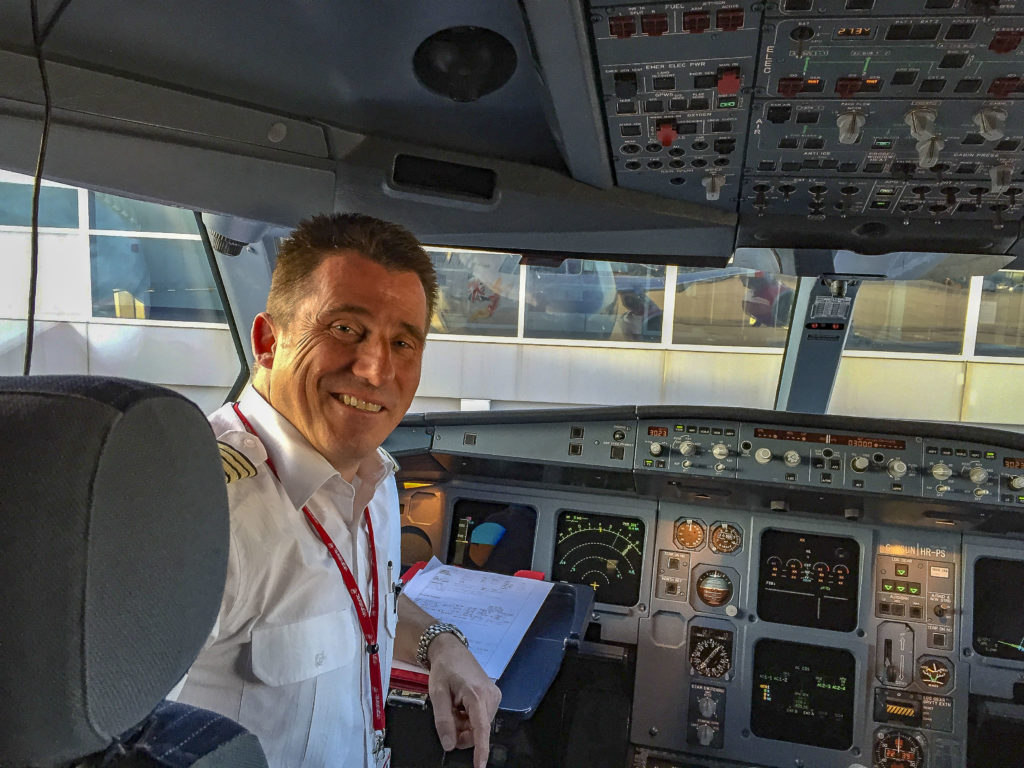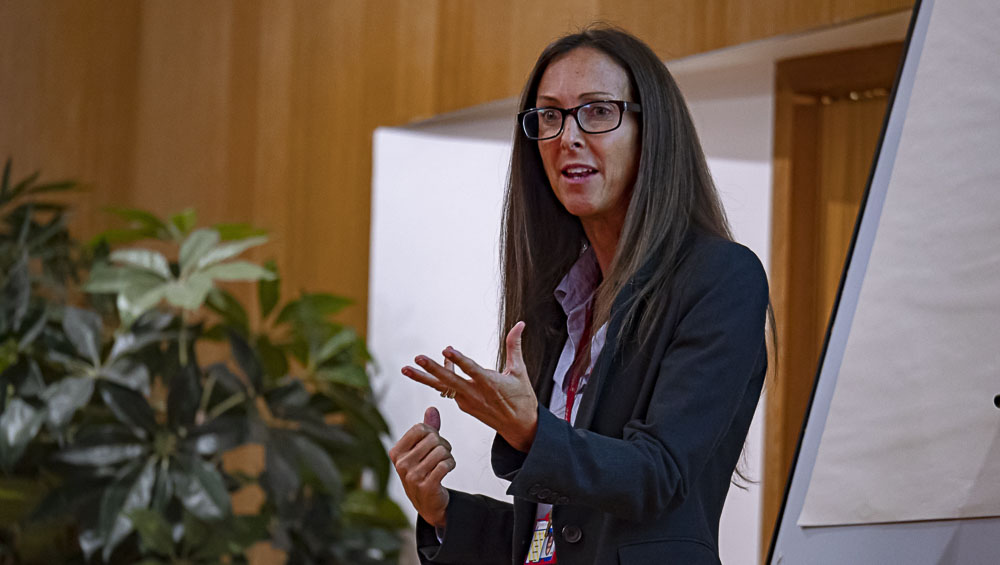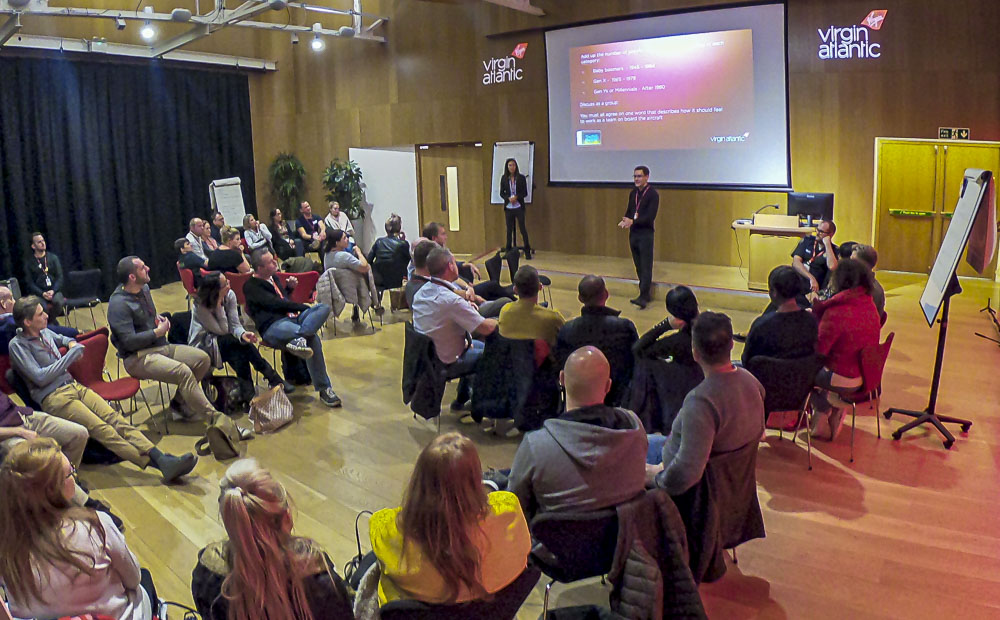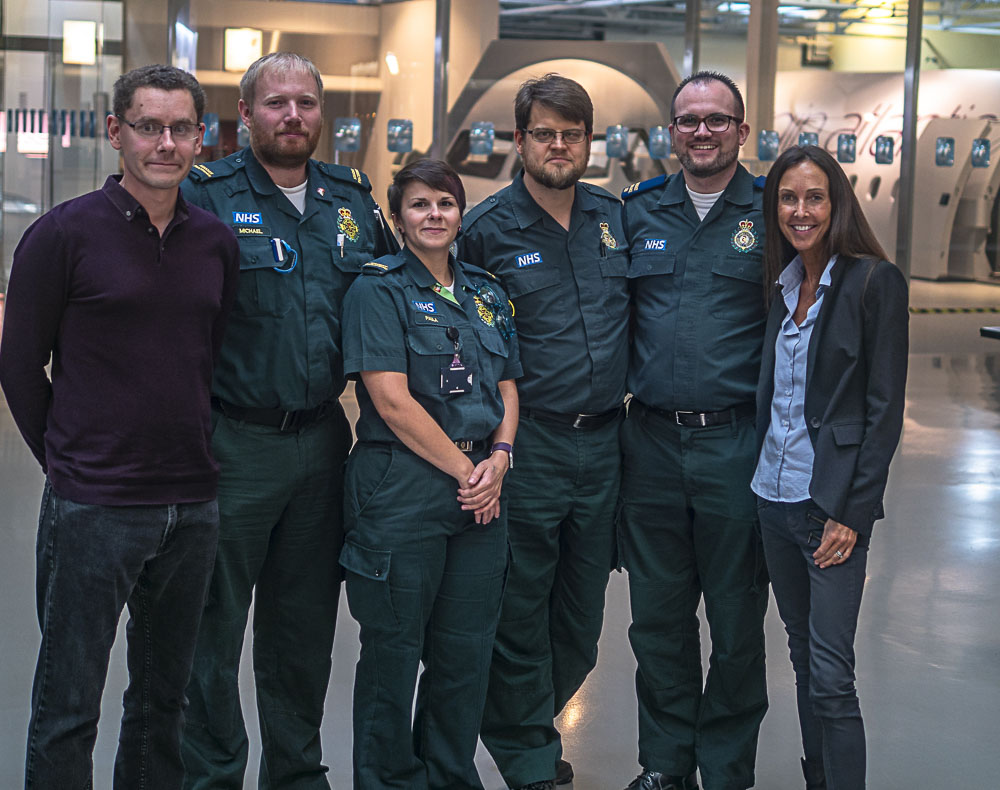Mike Vickers is a Senior First Officer on our Boeing 747 fleet, has flown for us for six years. Mike’s career has seen him work as an air traffic controller and airport fireman before landing his dream job as a pilot. He first became interested in Human Factors at his previous airline and is one of several Human Factor pilot specialists who work with Stella and Ian to deliver the course.
.png)
When you step onboard one of our aircraft, you’re putting yourself in the hands of true professionals. Our pilots and cabin crew have a tremendous amount of experience, backed up with the very best training. Just as important though, is how they work together as a team, and that’s something we also take incredibly seriously.
While a lot of safety issues are down to procedures and hardware (thank you Airbus and Boeing), there’s one element that’s less easy to understand. The human condition. How people react to each other, leadership and communication, stress and workload

Stella Ponsford is a training designer and Human Factors trainer. After flying as Cabin Crew for another airline, she joined us 13 years ago as a trainer. With a fascination for neuroscience and human behavior, Stella went on to gain a Human Factors qualification. She designed this course, trained all the trainers and sometimes delivers one of the weekly courses for our pilots and cabin crew.
management, teamwork and decision making. The study of this is called Human Factors (HF) and we have a team of people dedicated to the subject. We caught up with three people responsible for making sure we’re completely on point when it comes to Human Factors, and that it’s considered in everything we do. It’s a broad subject that can range from analysing events to how our pilots and cabin crew work together to handle some of the tricky situations, such as medical emergencies, that occasionally happen onboard.
Ian ‘Spiney’ Norman is one of our Airbus captains, and our Human Factors Pilot responsible for the programme. He joined Virgin Atlantic in 2001 after a 19-year career in the Royal Air Force where he flew Buccaneer, Hawk and Tornado fast jets before promotion to Squadron Leader and Executive Officer of XIII Squadron. It was during his RAF career that Ian developed a passion for Human Factors, and he joined our Human Factors team as a specialist in 2004 before taking over as HF lead in 2016.

WHAT IS HUMAN FACTORS?
Stella. It’s about optimising our performance by truly understanding what limits us as human beings. If we can study these limitations and have an understanding and an awareness of how they affect us, we can learn how to cope with them in order to be better and safer.
Ian. “A general, but inadequate definition, would be the training of the cognitive and social skills needed to optimise safe and

efficient aircraft operation. To be most effective, such skills must be integrated into the job role. Good use of Human Factor skills relies on effective training and assessment by practitioners such as HF trainers, flying instructors and examiners (Training pilots). This all comes together into the behaviours our crew see and know today at Virgin Atlantic.”
Mike. HF is trying to understand and mitigate against limitations we all have as human beings, no matter how skilled we believe we are. It started out for pilots only, but quickly grew to include most groups of people involved in aviation (engineers and turnaround officers also do a course) to improve the way we all work together thereby improving safety – the ultimate aim of all training.
WHY IS HF SO IMPORTANT?
Stella. The culture that HF training promotes is one where you can be highly talented, skilled and experienced but still have the capacity to learn from errors, because you believe that in aviation, we treat these events as precious learning opportunities.
This is driven by our no blame culture, where we share ideas when things go wrong to prevent them from happening to someone else. HF training also teaches us that leadership and teamwork is an inclusive effort, where everybody’s talents and skills are recognised and valued. There is no fear in speaking up regardless of your rank if you feel something is unsafe or doesn’t feel right. We use stories from our crew and pilots to enhance the learning and the latest research from the world of neuroscience and social psychology.
“Great leadership isn’t about what you make people do, it’s about how you make people feel”.
Mike. It is so important as, compared to the technology we use, humans have developed so little. By understanding our limitations we can hopefully improve safety and improve the culture of the industry to be as safety minded as possible.
Each year the course covers different topics. For 2018, three things are discussed in the two-hour session:
Open and honest reporting. It all comes down to our industry wanting to learn rather than punish people. All our incident reviews are anonymised so that nobody gets blamed. That means people aren’t afraid of admitting their mistakes in the knowledge they will be used positively. This is safety culture at its best.
Leadership and trust. The crew on your flight might never have met each other before they report for duty. It’s vital they can trust each other to do the right thing should anything untoward happen. A big part of this is confidence in our training and procedures, but it’s also about those first few minutes together. As Stella puts it, “Great leadership isn’t about what you make people do, it’s about how you make people feel”.
The Generation Game. For the first time, we’ve got teams working on our aircraft who come from four different generations. That means there are people working together who access and absorb information in very different ways. What might seem like impatience to a baby boomer might be perfectly normal to a millennial. It’s only by recognising these differences that the different age groups can learn to understand each other and work together.

Mike and Stella with the ambulance crews
Our Human Factors courses generate a lot of interest from outside the airline. On this particular day, Stella and Mike were joined by four people from the Ambulance Service – Daniel Dray, Paula Newman, Michael Stoker and Torge Von Zengen. Daniel has worked in front-line emergency care for ten years and is currently studying for a degree in paramedic science at St George’s University.
It was fascinating to see the teams of ambulance crew and flight crew discover they have a lot in common. Both are safety critical roles that rely on teamwork. Both need to make quick decisions, often working in cramped conditions. Fatigue and stress can play a big part in both jobs and need to be managed effectively. And there’s an incredible dedication to the wellbeing of their colleagues, as well as their customers or patients. “Coming along to see how Virgin Atlantic does this has been hugely beneficial,” said Daniel. “It is impressive to see an organisation take human factors onboard and involve everyone.”
You always hear airlines say “safety and security is our number one priority” but it’s sometimes easy to forget how much effort goes into that.
As an industry, what we do, and how safely we do it is far from easily won. Safety borrows from decades of experience, countless learnings from the history books of aviation and the dedication and skill of every single person who works at an airline. It comes from world-class training and a relentless focus, keeping safety front of mind, of being alert and vigilant. As customers, you have your part to play too. Our safety demos are there for a reason, as are the rules and regulations around packing your bags. You might not need Human Factors training but when it comes to safety, when you step onboard one of our aircraft, you become one of our team too.
